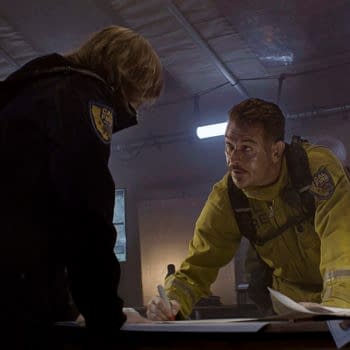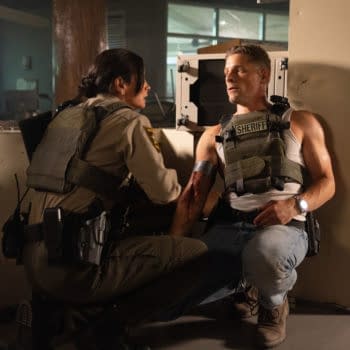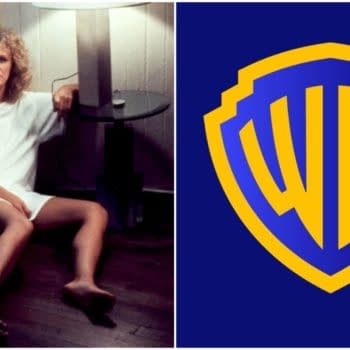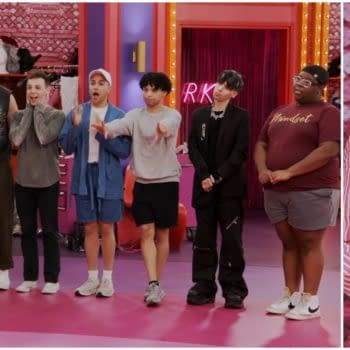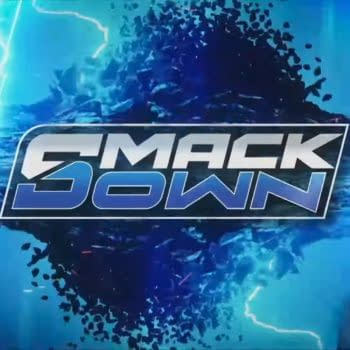Posted in: CW, TV | Tagged: arrowverse, The Flash
The Flash Star Panabaker Gets Real About Crossovers, "Bad Behavior"
The Flash star Danielle Panabaker shares her issues with the "Arrowverse" crossovers and feeling that "bad behavior" by some was rewarded.
It's hard to believe that it's only been a little more than two years since the final chapter was written on the Arrowverse, with The Flash S09E13: "A New World, Part Four" hitting screens in May 2023. Though it remains to be seen if DC Studios will ever consider revisiting the television universe that ran for over a decade, fans will never run out of stories from the folks who helped bring shows such as Arrow, The Flash, Supergirl, DC's Legends of Tomorrow, Black Lightning, and Batwoman – and their crossovers – to life. Checking in with Michael Rosenbaum's Inside of You with Michael Rosenbaum podcast, The Flash star Danielle Panabaker was refreshingly open and honest about her experiences in the Arrowverse, appreciating the opportunities it afforded her while also sharing the realities of how difficult filming – and negotiations – could be. Over the course of the episode (which you can check out above), Panabaker discusses some crucial issues she had with crossovers regarding how the actors were compensated. In addition, she opens up about feeling like "bad behavior" by some was rewarded, and how that was a consideration when it came time for a new contract.
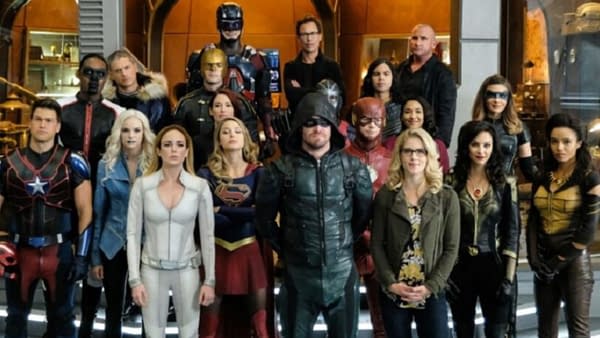
Panabaker on How "Arrowverse" Producers, Studio Handled Crossovers: "Talk about fights with Warner Bros, this was one of the first surprises to me. So in 'Flash's' first season, they did the first crossover, and it was just 'The Flash' and 'Arrow.' It was Stephen Amell, David [Ramsey], and Emily [Bett Rickards] crossing over to 'The Flash,' and Grant [Gustin], Carlos [Valdes], and I crossed over to 'Arrow.' And the offer to do two jobs at the same time — to do the same role — when we guest-starred on 'Arrow,' it was top of show. So at the time, less than $10,000. This was the first inclination of like, 'Oh!' to me. 'This is crazy. You hired me to play the role of Caitlin Snow…'" Panabaker shared about how crossovers were handled regarding how actors would be compensated for the extra work. Rosenbaum clarified for his listeners/viewers what "top of the show" meant, adding, "Top of show, by the way, is not your salary. [It] is not what you're making on 'The Flash.' It's saying, 'You're going to be on another show, that it's going to air.'"
Panabaker added, "'You're going to do this job at the same time, and you're going to work twice as hard. So you're doing two jobs, we're going to pay you a fraction of what you're paid to do that job on 'The Flash."" Over time, crossovers were built into the contracts, but not always to the actor's advantage. "When we signed on to 'The Flash,' 'Arrow' [already] existed, and 'The Flash' was a pilot. At that time, they did not bake crossovers into our contracts. I think we were the last show that they stopped doing that. I think any other show — like 'Legends' or 'Supergirl' — it was in their contracts that if they crossed over to another show, they would only get a fraction of their [rate]. As years went on, I think that changed more for people like Stephen [Amell] and Grant [Gustin] and Melissa [Benoist]. I know someone who said, 'No, pay me my salary.' And they wrote that person out of the crossovers.
Panabaker on Feeling That "Bad Behavior Was Being Rewarded" on the Set: "Because I really pride myself on being punctual and prepared and knowing my lines and doing my best, and not everyone works that way. And it's hard. It was hard for me when I felt like bad behavior was being rewarded, when people who weren't behaving the same way I was, were receiving better, different, whatever treatment. But at the end of the day, it's like it's my job to keep my side of the street clean. Like, I can just focus on myself and decide. And that's what you know, you know how it is when you sign on to a show," Panabaker shared about what life could be like during production, noting that was a factor to take into consideration when contract talks came around. "Your contract is for six years; you don't really have a lot of wiggle room for those first many, many years. When it came time to negotiate at various points, it truly is that moment where you have to sit down and sit with yourself and say, 'Okay, like if I make this deal, if I accept this deal, then I have accepted it. I can't say yes and then be mad that I said yes for the next 365 days,'" she added.





